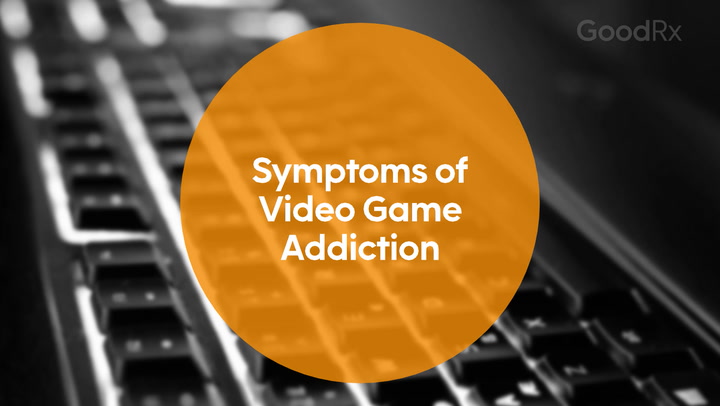
How to Help Someone With a Gambling Addiction
Key takeaways:
Gambling disorder is a mental health condition. It affects people like other addictions to alcohol or other drugs.
Noticing a gambling addiction is important but challenging to do. Like other behavioral addictions, it can be hard to tell if a person is gambling in moderation or dealing with a gambling disorder.
Helping someone with a gambling disorder takes patience, determination, and clear communication. You cannot end their disorder by yourself, so you will want to encourage the person to get professional treatment for their addiction.

Gambling disorder, sometimes called gambling addiction, is a mental health condition that affects the individual and their loved ones. It develops when a person gambles to the point that it negatively affects different areas of their life, like their health, relationships, and finances. Knowing someone with gambling disorder can make you feel confused, scared, or angry.
There is no perfect way to help someone with a gambling disorder. But there are some good rules to follow. These can help keep your relationship intact and encourage them to get the treatment they need.
What are the signs someone has a gambling addiction?
Gambling is a legal and socially acceptable activity in most places. You may enjoy gambling and do it in moderation. Other than losing a few dollars now and again, it doesn’t negatively affect your life.
Prescription Savings Are Just the Beginning
See what other benefits you qualify for—from cashback cards to cheaper insurance.

For other people, the situation is quite different. Gambling can become a behavioral addiction. This is when a person obsessively thinks about gambling and puts it above many other parts of their life.
Gambling can result in addictive symptoms. Someone with a gambling addiction will show signs of gambling disorder like:
A need to gamble more often or at higher stakes
Reliving past wins or planning future gambling efforts
Struggling to cut back or end their gambling behaviors
Feeling restless or angry when not able to gamble
Using gambling as a way to manage their mood
Lying and being secretive about gambling
Always trying to get even after losses
Asking other people for money to cover debts
Continuing to gamble, even when it interferes with relationships, work, or housing
People with gambling disorders tend to feel ashamed or guilty about their gambling. Gambling becomes less about having fun and more of a bad habit to avoid discomfort.
Steps to help a loved one with a gambling addiction
Helping someone with a gambling problem is a test of the relationship and of your support level. Before beginning the process, you must realize that no one person can be responsible for the actions of another. You cannot force anyone to stop gambling.
You can best help your loved one by following a four-step plan. A gambling addiction is similar to an addiction to drugs or alcohol, called a substance use disorder. So many of the same strategies are helpful here.
Read more like this
Explore these related articles, suggested for readers like you.
Step one: Track the situation
Your loved one could gamble every day or only on the weekends. They could spend all of their time at a casino or secretly gamble using apps on their phones. They could become very angry after a loss or spend hours feverishly looking for money.
Whatever their patterns are, pay attention. Write down their routines. This information helps you gather your thoughts and become more prepared for a later conversation. It’s important to not use this information, though, in a way that makes the person feel guilty or ashamed.
Also, remember that the amount that a person gambles does not determine if they have an addiction. A person has a gambling addiction if they gamble to the point that it negatively affects their life. A person could gamble once a week and have a disorder.
Step two: Check on yourself
Now that you know what they do, notice how it affects you. Do you feel:
Afraid when they lose?
Angry when they ask for money?
Scared when they become violent or aggressive?
Annoyed when they ignore you?
Sad when they cancel plans?
At times, you may even like how the person acts after a win. All of your feelings are important.
Step three: Form a plan
Now that you’ve gathered this information, you need to decide what to do with it. You could choose to have a serious conversation about it, write a letter, or let it go completely. You could also leave the situation and end the relationship if you feel the gambling will not improve.
If you choose to talk to the person with a gambling addiction, you will want to be prepared with treatment options and resources (more on that below).
You could act alone. Or, you could gather a network of supportive friends and family to help in your process. Therapy or support groups for loved ones of gamblers, like GAM-ANON, may provide additional help.
Step four: Act and stay consistent
No matter the plan, it is best to follow through and stay consistent. If you cave in or buckle under the pressure, your loved one will not learn the lesson. Worse, they may see you as someone who bluffs or says one thing but does another.
Their actions may force you to make tough choices. Remember, though, it is their behaviors that are forcing your response.
For example, if you tell them to seek treatment or you will end the relationship, you’ll need to follow through with your end of the bargain if they don’t.
How do I talk to a friend or loved one about their gambling problem?
Often, the plan that you make in step three will involve a serious and heart-felt conversation about their gambling and how their gambling affects you. Good communication could be the difference between a positive and negative outcome.
To increase the odds of success when you talk to your loved one about gambling:
Set a time and place. Springing a serious conversation on someone could make them defensive, angry, or violent. Let them know you’d like to talk and agree on the setting.
Limit distractions. When it’s time for the conversation, keep the setting free from distractions. Turn off the TV and put the phones away. Sit with each other and maintain privacy.
Stick to your plan. The emotion of the situation may distract you from your goal. Do your best to stick to the plan. Feel free to write down notes or main points you’d like to express.
Be clear. In an attempt to be persuasive, you may use flowery speech and big words. Instead, be clear. Be direct. Tell them the problem. Then, tell them what you’d like them to do about it.
Stay calm. Denial, blaming others, and avoidance are common in people with addictions. Responding with anger will only damage the conversation. Stay calm and patient. Try to manage your own emotions and focus on the facts.
The conversation should focus on the problems caused by gambling and how professional treatment is needed. Be prepared with the names and contact information for nearby facilities. Ask how you can help support them.
Why is listening important?
Conversations are two-way streets. You cannot expect to lecture your loved one about their gambling and not listen to their side of the story. If you do, you risk angering them and causing strain in the relationship.
Tune in to their opinion and show respect along the way. Try to understand their point-of-view.
Encourage them to share their experience. Even if you disagree with their message, you’ll be better off if you try to hear it.
What treatments are available for someone with a gambling addiction?
There are no medications approved to treat gambling disorder. Therapy is the main treatment available. Effective therapy can help your loved one:
Decrease or end their gambling
Improve relationships
Improve coping skills
Manage stress
Avoid triggers
Stabilize their finances
Depending on how severe their gamblin addiction is, a person may benefit from outpatient or inpatient/residential treatment options. Treatment for addiction is most effective when it is tailored to the needs of the individual.
What are ways I can be supportive of someone struggling with a gambling addiction?
The best way to support a loved one struggling with an addiction is to balance being patient with setting healthy boundaries. Patience is needed since recovering from an addiction takes time. There could be relapses and other setbacks during recovery.
Boundaries are equally important. If they ask for money or for you to lie for them, don’t do it. It will only enable their addiction.
Without boundaries, you could enable unwanted behaviors and stand in the way of recovery. Follow through on your plans, even when they are difficult.
Resources for gambling addiction
Many states now have local gambling helplines to access support and treatment. If someone you know struggles with a behavioral addiction, help is available. Call SAMHSA’s National Helpline at 1-800-662-HELP (4357) to learn about resources in your area.
The bottom line
Gambling and other behavioral addictions are challenging obstacles to overcome. They affect the person and their loved ones in unique ways. Do your best to gather information and express yourself calmly and clearly. By showing support, listening, and staying consistent, you can be an asset to someone in need.
Why trust our experts?


References
American Psychiatric Association. (2021). What is gambling disorder?.
Gamblers Anonymous. (n.d.). Gam-Anon: Help for family & friends.
National Council on Problem Gambling. (n.d.). Help by state.
National Institute on Drug Abuse. (2019). Family checkup.
National Institute on Drug Abuse. (2020). Living with an adult who has a substance use problem.
New York State Office of Addiction Services and Supports. (n.d.). Supporting a loved one in recovery.
Substance Abuse and Mental Health Services Administration. (n.d.). SAMHSA’s national helpline.
If you or someone you know struggles with addiction, help is available. Call SAMHSA’s National Helpline at 1-800-662-4357 to learn about resources in your area.





















